Fleurs du Mal Magazine



Middeleeuws Iers gedicht
vertaald door Lauran Toorians
Is di bésaib clúanaige,
áit i fera céilide,
do-tét i tech, saltraid fort
amal cach mbocc féinnide.
Is é tadall séguinne
áit i fera céilide,
do-tét i tech, snaidid crann,
gaibid rann co éimige.
Wat de boerenkinkel doet
als hij op bezoek komt:
hij komt binnen, en loopt over je
als een bokkige strijder.
Wat een welopgevoed man doet
als hij op bezoek komt:
hij komt binnen, breekt zijn stok
en citeert een passend vers.
Middeleeuwse Ierse gedichten
vertaald door Lauran Toorians
kempis.nl poetry magazine
More in: CELTIC LITERATURE, Lauran Toorians

Boekenmarkt Tilburg 2012:
Giphart en Van Zomeren over de column
Op zaterdagavond 25 augustus organiseert de Stichting Cools in het kader van de boekenmarkt ‘Boeken rond het Paleis’ een literaire avond in de bovenzaal van stadscafé MeesterS. De avond zal in het teken staan van de column.
Koos van Zomeren en Ronald Giphart zijn auteurs die niet alleen romans, maar ook columns hebben geschreven.
Ronald Giphart schrijft ze voor de Volkskrant waar hij de opvolger is van de meesterlijke columnist Martin Bril (volgens Giphart ‘de columnistste columnist van ons taalgebied’).
Koos van Zomeren is vermaard als de schrijver van de duizend-en-een schitterende miniatuurtjes die tussen 1992 en 1995 op de voorpagina van NRC Handelsblad verschenen. Twee uitstekende columnisten dus, die met elkaar van gedachten zullen wisselen over het schrijven van columns. U kunt daar bij zijn, gratis en voor niets! De bijeenkomst duurt van 19.30 uur tot 21.30 uur. Wees op tijd.
Belangstellenden moeten reserveren. Zij worden verzocht zich vóór 21 augustus via email op het adres: nvadevries@home.nl aan te melden.
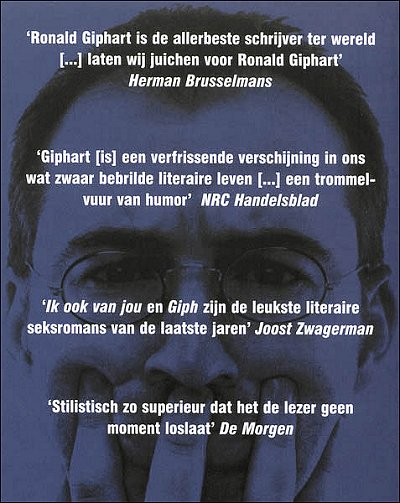
fleursdumal.nl magazine
More in: - Book Lovers
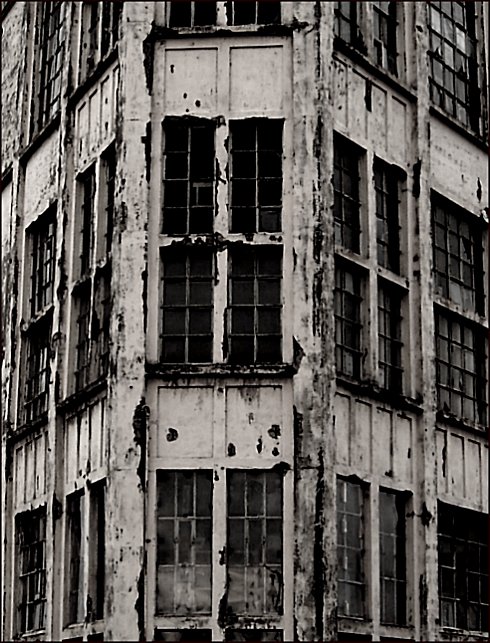
J.A. Woolf©: Making memories (22)
kempis.nl poetry magazine 2012
More in: J.A. Woolf
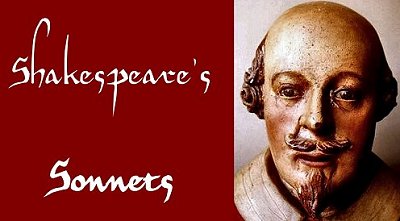
William Shakespeare
(1564-1616)
THE SONNETS
Sonnet 139
O call not me to justify the wrong,
That thy unkindness lays upon my heart,
Wound me not with thine eye but with thy tongue,
Use power with power, and slay me not by art,
Tell me thou lov’st elsewhere; but in my sight,
Dear heart forbear to glance thine eye aside,
What need’st thou wound with cunning when thy might
Is more than my o’erpressed defence can bide?
Let me excuse thee, ah my love well knows,
Her pretty looks have been mine enemies,
And therefore from my face she turns my foes,
That they elsewhere might dart their injuries:
Yet do not so, but since I am near slain,
Kill me outright with looks, and rid my pain.
![]()
kempis.nl poetry magazine
More in: -Shakespeare Sonnets

Eeuwig aantastbaren
In poten geschoten
vogels strompelen door
eieren, ooit bewaakt
nu verlaten in de
rimboe van het riet
ver van onze bedden.
Jagers minus kogels
zien niets, schuld
drukt hun schouders
geen millimeter naar
beneden en tot God is
nooit afdoende gebeden.
Freda Kamphuis
kempis.nl poetry magazine
More in: Archive K-L, Kamphuis, Freda
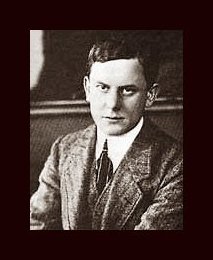
Ernst Stadler
(1883-1914)
Linda
Du griffst nach Glück.
Es schmolz wie Flocken Schnees,
die du in aufgehobnen Händen eingefangen.
Frost fiel auf dich. Du hast Decken
über dein rot strömendes Herz gehangen.
Traumstarre kam und füllte alle Mulden deiner Seele
wie Gewässer aus entsperrten Wehren –
Nun fühlst du Wüsten um dich wachsen,
die dein wehes Blut verzehren.
Nun siehst du dich, mit nachtgebundnen Augen,
wie im Schlaf, durch tote Gassen schreiten
Und Schicksal, spukhaft nah und unerreichbar,
dir vorübergleiten.
Wach auf! Gespenster suchen dich!
Sieh: über dir wölbt sich südlicher Mittagshimmel,
buntgefleckt, goldtief und klar!
Sieh: der Meerwind deiner Kindheit weht immer noch
über dein aufgelockertes schwarzes Haar!
Sieh: deine schlaf betäubten Augen sind
ganz getränkt und vollgesogen
Mit Glück der Welt, das sie in frühen Klostertagen
dürstend auf sich hergezogen.
Und jeder Hauch,
der dein erwachend Blut dereinst bewegt,
Ward nun zum festen Pulsschlag,
der dein Wesen nährt und trägt.
Tanz bäumt sich in deinen Gliedern
und wartet, aufgereckt,
Daß deines Herzens Cymbelschlagen
seine Lust erweckt.
Deines Lebens Stimme steigt,
morgendlich überschwellend wie Lerchenschlag,
Über das Frühlingsland,
das lauter und jung erglänzt wie am ersten Tag.
Vor deiner Schwelle wartet alles Wunder
und will zu dir herein –
Schüttle die Nacht von dir!
Sei du! Und du wirst stark und selig sein.
Ernst Stadler poetry
kempis.nl poetry magazine
More in: *War Poetry Archive, - Archive Tombeau de la jeunesse, Archive S-T, Archive S-T, Stadler, Ernst
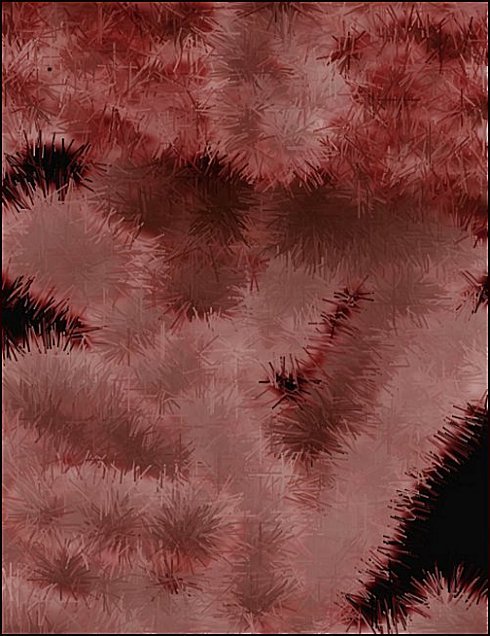
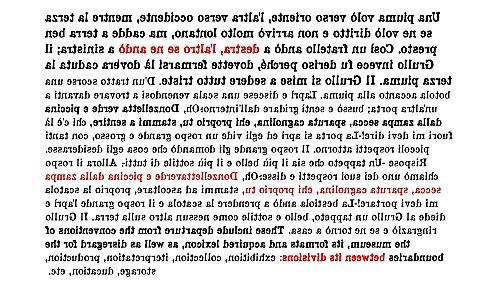
J.A. Woolf: Making memories (21)
kempis.nl poetry magazine 2012
More in: J.A. Woolf

Novalis
(1772-1801)
Ich sehe dich in tausend Bildern
Ich sehe dich in tausend Bildern,
Maria, lieblich ausgedrückt,
Doch keins von allen kann dich schildern,
Wie meine Seele dich erblickt.
Ich weiß nur, daß der Welt Getümmel
Seitdem mir wie ein Traum verweht,
Und ein unnennbar süßer Himmel
Mir ewig im Gemüthe steht.
Novalis poetry
fleursdumal.nl magazine
More in: Archive M-N, Novalis, Novalis
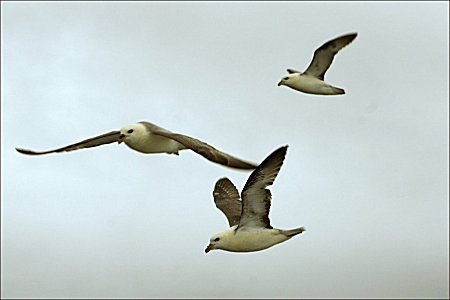

Little Birds
Little Birds are dining
Warily and well,
Hid in mossy cell:
Hid, I say, by waiters
Gorgeous in their gaiters –
I’ve a Tale to tell.
Little Birds are feeding
Justices with jam,
Rich in frizzled ham:
Rich, I say, in oysters
Haunting shady cloisters –
That is what I am.
Little Birds are teaching
Tigresses to smile,
Innocent of guile:
Smile, I say, not smirkle –
Mouth a semicircle,
That’s the proper style!
Little Birds are sleeping
All among the pins,
Where the loser wins:
Where, I say, he sneezes
When and how he pleases –
So the Tale begins.
Little Birds are writing
Interesting books,
To be read by cooks:
Read, I say, not roasted –
Letterpress, when toasted,
Loses its good looks.
Little Birds are playing
Bagpipes on the shore,
Where the tourists snore:
“Thanks!” they cry. “‘Tis thrilling!
Take, oh take this shilling!
Let us have no more!”
Little Birds are bathing
Crocodiles in cream,
Like a happy dream:
Like, but not so lasting –
Crocodiles, when fasting,
Are not all they seem!
Little Birds are choking
Baronets with bun,
Taught to fire a gun:
Taught, I say, to splinter
Salmon in the winter –
Merely for the fun.
Little Birds are hiding
Crimes in carpet-bags,
Blessed by happy stags:
Blessed, I say, though beaten –
Since our friends are eaten
When the memory flags.
Little Birds are tasting
Gratitude and gold,
Pale with sudden cold:
Pale, I say, and wrinkled –
When the bells have tinkled,
And the Tale is told.
Lewis Carroll
(1832-1898)
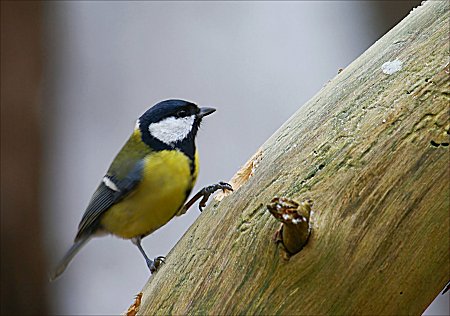
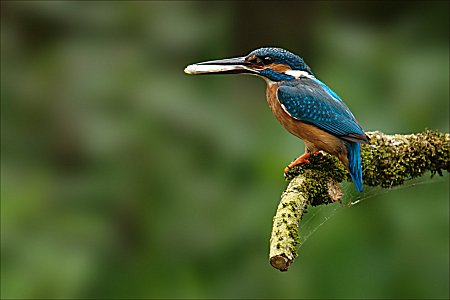
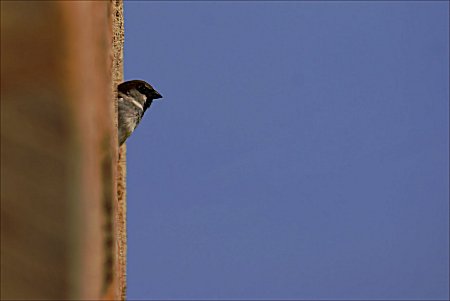
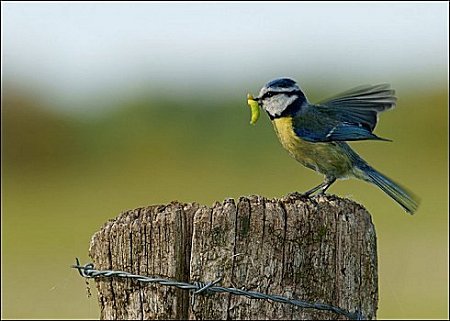
Hans Hermans photos – Natuurdagboek 05-12
Gedicht Lewis Carroll
fleursdumal.nl magazine
More in: Carroll, Lewis, Hans Hermans Photos
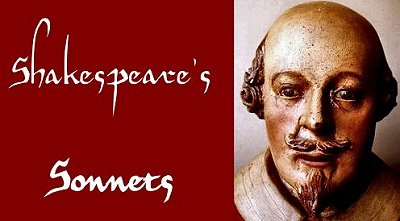
William Shakespeare
(1564-1616)
THE SONNETS
Sonnet 138
When my love swears that she is made of truth,
I do believe her though I know she lies,
That she might think me some untutored youth,
Unlearned in the world’s false subtleties.
Thus vainly thinking that she thinks me young,
Although she knows my days are past the best,
Simply I credit her false-speaking tongue,
On both sides thus is simple truth suppressed:
But wherefore says she not she is unjust?
And wherefore say not I that I am old?
O love’s best habit is in seeming trust,
And age in love, loves not to have years told.
Therefore I lie with her, and she with me,
And in our faults by lies we flattered be.
![]()
kempis.nl poetry magazine
More in: -Shakespeare Sonnets

Norbert de Vries
Kemp natuurlijk (I)
Nee, ik ben in het geheel geen Kemp-deskundige. Verre van. Toch wist ik heel lang geleden al (ik was nauwelijks de korte broek ontwassen) dat Pierre Kemp een van Neerlands grootste dichters is.
Ik zat op de middelbare school toen hij overleed (1967). Mijn leraar Nederlands heette De Kemp, en was een groot bewonderaar van Kemp. Logisch dus dat hij ons voortdurend aan de kop zeurde over de Engelse verfdoos, over stabielen en passanten, over transitieven en immobielen, en meer van dat fraais. Logisch dus ook dat Kemp voor ons, zijn leerlingen, een gouden klank kreeg. Hoewel, dat is helemaal niet zo vanzelfsprekend! Want we moesten bijvoorbeeld niks hebben van Aart van der Leeuw en dat soort ‘mindere goden’ over wie hij eveneens hoog placht op te geven.
Maar zijn liefde voor Kemp konden we heel wel invoelen.
Kemp en Maastricht, die horen bij elkaar. Ook dat spreekt niet vanzelf. Want waar -dacht ik- schreef die dichter het meeste van zijn werk? Onderweg! Denkend aan Kemp zag ik een saaie man, die gedurende tientallen jaren ’s morgens vroeg op de trein naar Heerlen stapte om oervervelend administratief werk te gaan doen op de mijn Laura, en die ’s avonds weer (opgelucht, zo stelde ik mij voor) terug naar Maastricht spoorde. In de trein dichtte hij. Het is maar een kort traject, en het waren daarom meestal korte gedichtjes.
Dat boeide me: het contrast tussen een ambtenaar (lees: grijze man) en al die sprankelende, kleurrijke, levendige gedichtjes.
Ach, elk beeld is een vertekening van de werkelijkheid.
Maar toch, de associatie Kemp-Maastricht en vice versa was sterk. En zo kwam het dat ik lang geleden eens, bij het bladeren in dat dikke, rode postcodeboek (altijd op zoek naar buitenissige straatnamen), ineens bezorgd bedacht: ze zullen in Maastricht toch wel een Pierre Kempstraat hebben? Ik zocht en vond niet.
Dat wekte mijn woede. Godmiljaar, dan hèbben ze daar in het diepe zuiden eindelijk eens een groot kunstenaar in hun midden, en dan zijn ze nog te beroerd om hem te eren. En ik dacht aan Valkenburg en Jan Hanlo, en aan zoveel meer miskenden.
In ieder geval: het bleef me steken. Ik lag er niet van wakker, maar toch, iedere keer als ik Kemp onder ogen kreeg, vulden fiolen zich met toorn en had ik die graag uitgegoten over de domme hoofden der Maastrichtse bestuurderen. Een profeet wordt in zijn vaderstad niet geëerd, en grote dichters evenmin.
Allez, de jaren verstreken en op zekere dag vernam ik dat Wil L., destijds directeur bij het ROC Midden-Brabant en iemand met wie ik uit hoofde mijner functie regelmatig contact had inzake volwasseneneducatie, benoemd was bij de gemeente Maastricht. Iets heel hoogs bij de dienst Welzijn, Cultuur en nog zo het een en ander. Ha, dacht ik, dan zal die belangrijke Wil zijn invloed prima kunnen aanwenden om het historisch onrecht inzake Pierre Kemp ongedaan te maken. Straatnaamgeving zal wel onder Cultuur vallen, dus kat-in-het-bakkie. En ik schreef hem een lange brief waarin ik aandrong op een doeltreffende actie van hem in dezen.
Ik hoorde er niets meer van.
Toen geschiedde het dat de eminente Gerd L. benoemd werd tot burgemeester van Maastricht.
Ha, dacht ik, dat is bingo! En ik herhaalde mijn verzoek betreffende Kemp. Nu zal het zeker goed komen, meende ik.
Het kan raar lopen in een menschenleven, want niet lang daarna ging ik zelf in Maastricht werken. Op het kabinet van de burgemeester. En neemt u maar van mij aan dat een kabinetsmedewerker een heel belangrijke ambtenaar is binnen de gemeentelijke organisatie! Iemand die aan bepaalde touwtjes kan trekken, waarna een ambtenaar elders ineens rare bewegingen gaat maken. Zijns ondanks.
Goed, reeds op mijn eerste werkdag vroeg ik op hoge toon om het dossier over de straatnaamgeving. Eerbiedig werd het mij aangereikt. En ik zag en las, dat ik mij al ruim 15 jaar ten onrechte had opgewonden, want in 1986 had de gemeenteraad ter gelegenheid van de honderdste geboortedag van Pierre Kemp besloten (een deel van) het stadspark de naam ‘Kempland’ te geven. Eigenlijk zou dat moeten zijn ‘Kemp-land’, maar alla.
Een mooi en goed besluit, eindelijk. Tien jaar eerder had de Stichting Pierre Kemp verzocht om de naam ‘Aldenhofpark’ te vervangen door ‘Kemp-land’, maar dat was toen afgewezen. (Het is toch om uit je vel te springen!)
Vervolgens, in 1986, wil de gemeente wèl wat doen, en zoals dat vaak gaat met gemeentebesturen: ze hebben het weer eens slechts half begrepen. In de raadsvergadering van 1 april 1986 komt het voorstel aan de orde om het parkgedeelte, omsloten door de Graanmarkt, de Maasboulevard, de Prins Bisschopsingel, de Sint Pieterskade en de O.L. Vrouwewal, de naam te geven ‘Pierre Kemp-park’.
Nou, dat is toch prachtig?, zult u zeggen. Nee, lieve lezer, dat is maar half prachtig, want eerst die naam ‘Kemp-land’ was ten volle prachtig. Die naam immers verwijst naar een in dit verband zeer essentieel gedicht van Pierre Kemp: ‘Woede over een aardbol zonder Kemp-land’.
Kemp schreef dit gedicht in 1953. Ik citeer uit een brief van zijn hand d.d. 11 november 1953 het volgende: “Het is wel een gekke dag, die 11e van de 11e maand, maar dit mag mij toch niet beletten u een zeer serieus gedicht te laten toekomen. Uit de tijd, dat u zich nader hebt kunnen bezighouden met geografie, zult u zich nog wel het Enderby en het Kemp-land aan de Zuidpool herinneren. De rijke reders, de gebroeders Enderby uit London -ik schrijf als volbloed Engelsman nooit Londen- zonden in 1833 meerdere vaartuigen naar de Zuidpoolstreken. Het geheel stond onder leiding van Biscoe, die ook iets aan de Zuidpool heeft, en een der vaartuigen stond onder de orders van Kemp, die het land naar hem genoemd ontdekte, -wat een geweldige parentage heb ik toch, vindt u niet- , maar als volbloed Engelsman moet je daarover kunnen beschikken. Zolang dat Kemp-land nu maar op die aardbollen stond, was alles goed en kon ik rustig gaan slapen. Dat hield op, toen ik er een zag, waarop meergemeld land niet meer voor kwam, gelijktijdig met Zuidpoolkaarten, waar het ook ontbrak. Toen was de bok vet en ben ik naar Fernand gegaan en liet mij bij hem Beethoven’s ‘Wut um den verlorenen Groschen’ voorspelen. F. zag mijn ogen stilaan vochtig worden en later de tranen langs mijn wangen biggelen en vroeg mij welk leed mij toch deerde. Om niet kinderachtig te schijnen en te zeggen, dat ik van woede schreide, vertelde ik hem, dat een der Muzen mij ontrouw was geworden en dat ik er nu nog maar acht over had. (…) Enfin, ik heb nu ook mijne speciale woede en ééne, die veel dieper ingrijpt dan de Groschen van Beethoven en de drachme uit het Nieuwe Testament.”
Het gedicht zelf is te lang om hier volledig weer te geven Ik beperk me tot de laatste vier regels:
En draai nu maar Aarde zonder K,
zonder E, zonder M en zonder P!
Ik kijk je, als onwaardig, toch niet meer na,
sinds Ik niet meer draai mee!!!
Welnu, ieder die een greintje gevoel heeft voor poëzie, zal onmiddellijk instemmen met het idee van de Stichting Pierre Kemp om een deel van het stadspark ‘Kemp-land’ te noemen. Maar je hebt altijd ambtenaren, en de meesten hunner ontberen dat genoemde greintje. Er kwam dus op 1 april 1986 een voorstel ter tafel om het bedoelde deel van het park om te dopen in ‘Pierre Kemp-park’.
Gelukkig had het stichtingsbestuur een der raadsleden, mevrouw Ceha-Konings, goed geïnstrueerd. Zij verklaarde, legde uit, en diende een amendement in. Eerst nog wat gedimdam over de vraag of het niet beter is de zaak aan te houden tot de volgende vergadering, en een laatste poging van de voorzitter (burgemeester Houben):
“Ik begrijp dat er maar een geringe belangstelling voor aanhouding bestaat, dat men nu een beslissing wil nemen. Ik wil nog één poging doen ten faveure van het voorstel van ons college. De naam Kempland zegt alleen de ingewijden iets. Anderen zullen de naam associëren met woorden als kemphaan en dergelijke. In het stadspark hebben we verschillende personen, onder wie mgr. Nolens, Aldendorf en anderen. Nu hebben wij bewust de naam Pierre Kemp, met voornaam, gekozen omdat er ook andere personen met de naam Kemp in de literatuur bekend zijn geraakt.”
Maar ook deze laatste poging lijdt schipbreuk: bij handopsteken wordt het amendement van mevrouw Ceha aanvaard.
Kempland werd het dus.
Uiteraard.
Norbert de Vries: Kemp natuurlijk I
Mijmeringen over Pierre Kemp uit mijn Maastrichtse tijd
fleursdumal.nl magazine
More in: Kemp, Pierre, Norbert de Vries
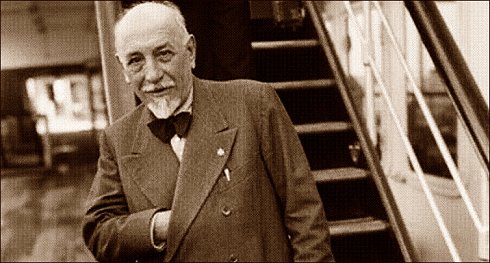
Luigi Pirandello: Shoot! (26)
Shoot! (Si Gira, 1926). The Notebooks of Serafino Gubbio, Cinematograph Operator by Luigi Pirandello. Translated from the Italian by C. K. Scott Moncrieff
BOOK V
4
What fools all the people are who declare that life is a mystery, wretches who seek to explain by the use of reason what reason is powerless to explain!
To set life before one as an object of study is absurd, because life, when set before one like that, inevitably loses all its real consistency and becomes an abstraction, void of meaning and value. And how after that is it possible to explain it to oneself? You have killed it. The most you can do now is to dissect it.
Life is not explained; it is lived.
Reason exists in life; it cannot exist apart from it. And life is not to be set before one, but felt within one and lived. How many of us, emerging from a passion as we emerge from a dream, ask ourselves:
“I? How can I have been like that? How could I do such a thing?”
We are no longer able to account for it; just as we are powerless to explain how other people can give a meaning and a value to certain things which for us have ceased or have not yet begun to have either. The reason, which lies in these things, we seek outside them. Can we find it? Outside life there is nullity. To observe this nullity, with the reason which abstracts itself from life, is still to live, is still a ‘nullity’ in our life: a sense of mystery: religion. It may be desperate, if it has no illusions; ft may appease itself by plunging back into life, no longer as of old but there, into that ‘nullity’, which at once becomes ‘all’.
How clearly I have learned all this in a few days, since I began really to feel! I mean, since I began to feel ‘myself also’, for other people I have always felt within me, and have found it easy therefore to explain them to myself and to sympathise with them.
But the feeling that I have of myself, at this moment, is most bitter.
On your account, Signorina Luisetta, for all that you are so compassionate! Indeed, just because you are so compassionate. I cannot say it to you, I cannot make you understand. I would rather not say it to myself, I would rather not understand it myself either. But no, I am no longer ‘a thing’, and this silence of mine is no longer an ‘inanimate’ silence. I wished to draw other people’s attention to this silence, but now I ‘suffer’ from it myself, so keenly.
I go on, nevertheless, welcoming everyone into it. I feel, however, that everyone hurts me now who comes into it, as into a place of certain hospitality. My silence would like to draw ever more closely round about me.
Here, in the meantime, is Cavalena, who has settled himself in it, poor man, as in his own home. He comes, whenever he can, to talk over with me, always with fresh arguments, or on the most futile pretexts, his own misfortunes. He tells me that it is impossible, on account of his wife, to keep Nuti in the house any longer, and that I shall have to find him a lodging elsewhere, as soon as he has recovered. Two dramas, side by side, cannot be kept going. Especially since Nuti’s drama is one of passion, of women. … Cavalena requires lodgers with judgment and self-control. He would gladly pay out of his own pocket to have all men serious, dignified, pure and enjoying a spotless reputation for chastity, with which to crush his wife’s furious hatred for the whole of the male sex. It falls to him every evening to pay the penalty–the fine, he calls it–for all the misdeeds of men, recorded in the columns of the newspapers, as though he were the author or the necessary accomplice of every seduction, of every adultery.
“You see?” his wife screams at him, her finger pointing to the paragraph in the paper: “You see what ‘you men’ are capable of?”
And in vain does the poor wretch try to make her see that in each case of adultery, for every erring man who betrays his wife, there must be also an erring woman, his accomplice in the betrayal. Cavalena thinks that he has found a triumphant argument, instead of which he sees Signora Nene’s mouth form that round O with her finger across it, the familiar expression which means:
“Fool!”
Excellent logic! That we know! And does not Signora Nene hate the whole of the female sex as well?
Drawn on by the unreal, pressing arguments of that terrible reasoning insanity which never comes to a halt at any conclusion, he always finds himself, in the end, lost or bewildered, in a false situation, from which he has no idea how to escape. Why, inevitably! If he is compelled to alter, to complicate the most obvious and natural things, to conceal the simplest and commonest actions; an acquaintance, an introduction, a chance meeting, a look, a smile, a word, in which his wife might suspect who knows what secret understandings and plots; then inevitably, even when he is engaged upon an abstract discussion with her, there must emerge incidents, contradictions which all of a sudden, unexpectedly, reveal him and represent him, with every appearance of truth, a liar and impostor. Revealed, caught out in his own innocent deception, which however he himself now sees cannot any longer appear innocent in his wife’s eyes; exasperated, with his back to the wall, in the face of the evidence, he still persists in denying it, and so, over and over again, for no reason, they come to quarrels, scenes, and Cavalena escapes from the house and stays away for a fortnight or three weeks, until he is once more conscious of being a doctor and the thought recurs to him of his abandoned daughter, “poor, dear, sweet little soul,” as he calls her.
It is a great pleasure to me when he begins to talk to me of her; but for that very reason I never do anything to incite him to speak of her: I should feel that I was taking a base advantage of her father’s weakness to penetrate, by way of his confidences, into the private life of that poor, dear, sweet little soul. No, no! Often I have even been on the point of forbidding him to continue.
Ages ago, it seems to Cavalena, his Sesè ought to have married, to have had a life of her own away from the hell of this house! Her mother, on the other hand, does nothing but shout at her, day after day:
“Never marry, mind! Don’t marry, you fool! Don’t do anything so mad!”
“And Sesè? Sesè?” I feel tempted to ask him; but, as usual, I remain silent.
Poor Sesè, perhaps, does not know herself what she would like to do. Perhaps, on some days, like her father, she would wish it to be to-morrow; on other days she will feel the bitterest disgust when she sees some hint of it pass between her parents. For undoubtedly they, with their degrading scenes, must have rent asunder all her illusions, all of them, one after another, shewing her through the rents the most sickening crudities of married life.
They have prevented her, meanwhile, from securing her freedom in any other way, the means of providing henceforward for herself, of being able to leave this house and live on her own. They will have told her that, thank heaven, there is no need for her to do so: an only child, she will some day have the whole of her mother’s fortune for herself. Why degrade herself by becoming a teacher or looking out for some other employment? She can read, study what she pleases, play the piano, do embroidery, a free woman in her own home.
A fine freedom!
The other evening, fairly late, when we had all left the room in which Nuti had already fallen asleep, I saw her sitting on the balcony. We live in the last house in Via Veneto, and have in front of us the open space of the Villa Borghese. Four little balconies on the top floor, on the cornice of the building. Cavalena was sitting on another balcony, and appeared to be lost in contemplation of the stars.
Suddenly, in a voice that seemed to come from a distance, almost from the sky, suffused with infinite pain, I heard him say:
“Sesè, do you see the Pleiads?”
She pretended to look: perhaps her eyes were filled with tears.
And her father:
“There they are… above your head… that little cluster of stars… do you see them?”
She nodded her head; yes, she saw them.
“Fine, aren’t they, Sesè? And do you see how bright Capella is?”
The stars… Poor Papa! A fine distraction. … And with one hand he straightened, stroked on his temples the curling locks of his artistic wig, while with the other… what? Why, yes … he was holding on his knee Piccini, his enemy, and was stroking her head…. Poor Papa! This must be one of his most tragic and pathetic moments!
There came from the Villa a long, slow slight rustle of leaves; from the deserted street an occasional sound of footsteps and the rapid clattering sound of a carriage driven in haste. The clang of the bell and the long-drawn whine of the trolley running along the electric wire of the tramway seemed to tear the street apart and fling it violently in its wake, with the houses and trees. Then all was silent, and in the weary calm returned the distant sound of a piano from one of the houses. It was a gentle, almost veiled, melancholy sound, which drew the spirit, fixed it at a definite point, as though to enable it to perceive how heavy was the cloak of sadness suspended over everything.
Ah, yes–Signorina Luisetta was perhaps thinking–marriage…. She was imagining, perhaps, that it was she who was playing, in a strange house, far away, that piano, to lull to sleep the pain of the sad, early memories which have poisoned her life for all time.
Will it be possible for her to illude herself? Will she be able to prevent from falling, withered, like the petals of flowers, on the silent air, chill with a want of confidence that is now perhaps insuperable, all the innocent graces that from time to time spring up in her soul?
I observe that she is spoiling herself, deliberately; she makes herself, every now and then, hard, bristling, so as not to appear tender and credulous. Perhaps she would like to be gay, frolicsome, as in more than one light moment of oblivion, when she has just risen from her bed, her eyes have suggested to her, from her mirror: those eyes of hers, which would so gladly laugh, keen and brilliant, and which she instead condemns to appear absent, or shy and sullen. Poor, lovely eyes! How often under her knitted brows does she not fix them on the empty air, while through her nostrils she breathes a long sigh in silence, as though she did not wish it to reach even her own ears! And how they cloud over and change colour, whenever she breathes one of those silent sighs.
Certainly she must have learned long ago to distrust her own impressions, perhaps in the fear lest she be gradually seized by the same malady as her mother. This is clearly shewn by her abrupt changes of expression, a sudden pallor following a sudden crimson flushing of her whole face, a smiling return to serenity after a fleeting cloud. Who knows how often, as she walks the streets with her father and mother, she must feel herself stabbed by every sound of laughter, and how often she must have the strange feeling that even that little blue frock, of Swiss silk, light as a feather, is weighing upon her like the habit of a cloistered nun and that the straw hat is crushing her head; and be tempted to tear off the blue silk, to wrench the straw from her head and tear it in pieces furiously with both hands and fling it… in her mother’s face? No… in her father’s, then? No… on the ground, on the ground, trampling it underfoot. Because it must seem to her a masquerade, an idiotic farce, to go about dressed like that, like a respectable person, like a young lady who is under the illusion that she is cutting a figure, or rather who lets it be seen that she has some beautiful dream in her mind, when presently at home, and even now in the street, everything that is most ugly, most brutal, most savage in life must be disclosed, must spring to light in those almost daily scenes between her parents, to smother her in misery and shame and disgrace.
And this reflexion more than any other seems to me to have profoundly penetrated her soul: that in the world, as her parents create it for themselves and round about her with their comic appearance, with the grotesque absurdity of that furious jealousy, with the disorder of their existence, there can be no room, air nor light for her charm. How can charm shew itself, breathe, refresh itself in a delicate, light and airy hue, in the midst of that ridicule which holds it down and stifles and obscures it?
She is like a butterfly cruelly fastened down with a pin, while still alive. She dares not beat her wings, not only because she has no hope of freeing herself, but also and even more because she might attract attention.
Luigi Pirandello: Shoot! (26)
kempis.nl poetry magazine

More in: -Shoot!
Thank you for reading Fleurs du Mal - magazine for art & literature